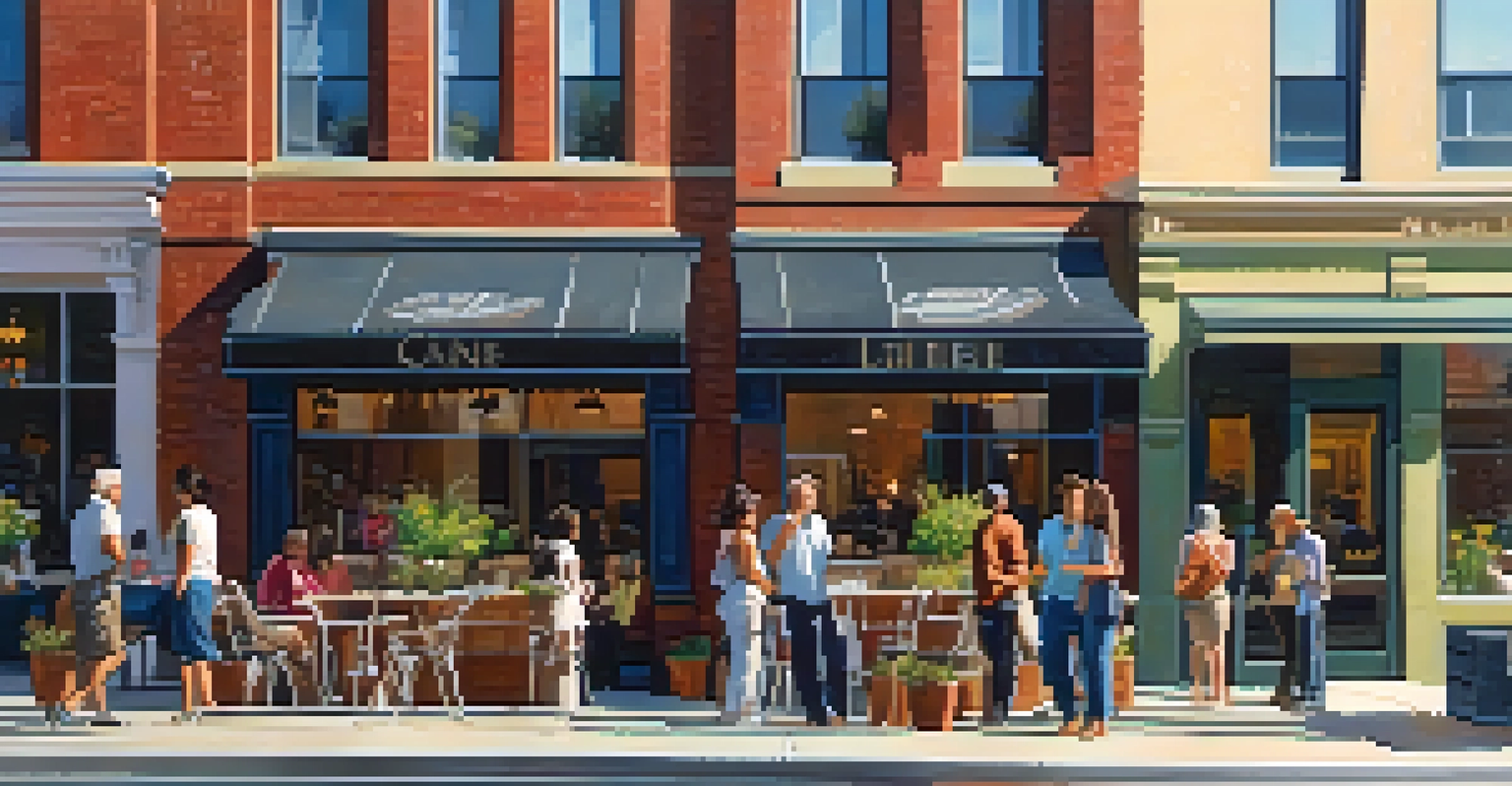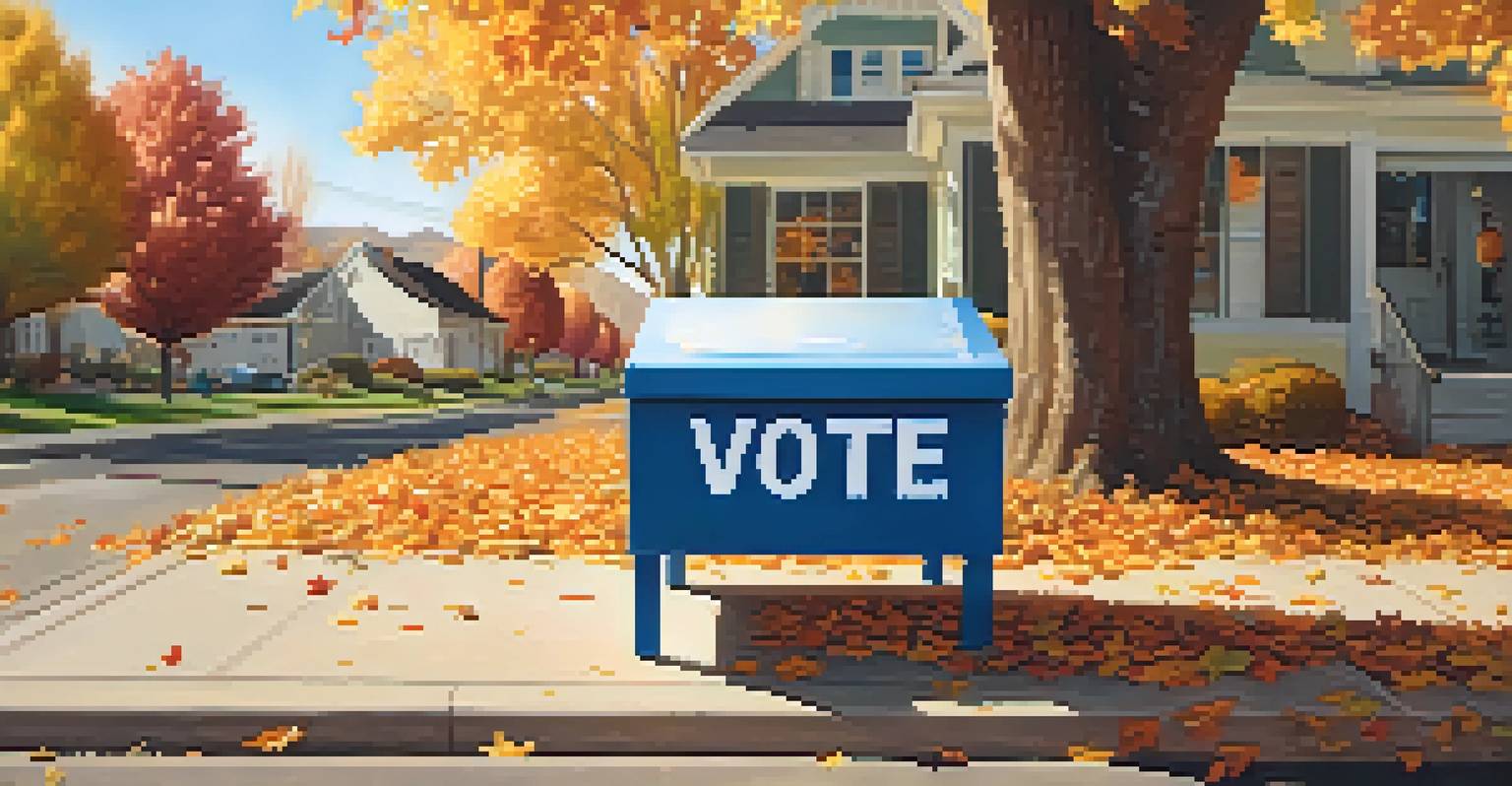Exploring Utah's Political Landscape: Key Players and Issues

An Overview of Utah's Unique Political Environment
Utah's political landscape is as diverse as its stunning scenery. Known for its predominantly Republican leanings, the state also boasts a growing Democratic presence, particularly in urban areas like Salt Lake City. This blend creates a dynamic environment where issues are often debated passionately, reflecting both traditional values and progressive ideas.
The greatest danger in times of turbulence is not the turbulence; it is to act with yesterday's logic.
The influence of the Church of Jesus Christ of Latter-day Saints is significant in Utah politics. Many political candidates align their platforms with the values and beliefs that resonate with the church's teachings. However, the rise of younger, more diverse voters is challenging the status quo and prompting discussions about representation and inclusivity.
As we navigate Utah's political terrain, it's essential to recognize the impact of local issues, including education, healthcare, and environmental concerns. These factors shape the opinions of voters and influence the decisions made by key political figures, making it a fascinating landscape to explore.
Key Political Players Shaping Utah's Future
Utah's political scene features a mix of long-established figures and emerging leaders. Governor Spencer Cox, for instance, has garnered attention for his pragmatic approach to governance and his focus on unity. His leadership style emphasizes collaboration, which is crucial in a state with varying political ideologies.

Another significant player is Senator Mitt Romney, known for his willingness to break party lines when necessary. His moderate stance on several issues, including climate change and healthcare, resonates with a segment of the population seeking more balanced representation. Romney's influence extends beyond Utah, impacting national conversations about the future of the Republican Party.
Diverse Political Landscape in Utah
Utah's political environment features a blend of traditional Republican values and a growing Democratic presence, particularly in urban areas.
Additionally, the rise of grassroots movements and local activists is reshaping Utah's political landscape. Figures like Rep. Angela Romero advocate for social justice and environmental issues, showcasing a growing demand for progressive policies among Utahns, especially younger voters who are increasingly engaged in the political process.
The Role of Local Government in Utah Politics
Local government plays a pivotal role in shaping policy and addressing community needs in Utah. With a strong emphasis on local control, city and county officials often have significant authority over issues like zoning, education, and public safety. This decentralized approach allows for tailored solutions that reflect the unique needs of each community.
Politics is the art of looking for trouble, finding it everywhere, diagnosing it incorrectly, and applying the wrong remedies.
For instance, Salt Lake City's mayor and council have actively pursued policies aimed at affordable housing and public transit improvements. Their efforts highlight the importance of local governance in addressing pressing issues that directly affect residents' quality of life. By prioritizing community engagement, local leaders foster a sense of accountability and responsiveness.
Moreover, local government often serves as a training ground for future state and national leaders. Many politicians begin their careers at the city or county level, gaining invaluable experience that shapes their broader political views. This pipeline of leadership helps ensure that Utah's political landscape remains vibrant and responsive to its constituents.
Current Issues Impacting Utah's Political Landscape
Several pressing issues are currently shaping the political discourse in Utah. Education funding remains a hot-button topic, with debates often centered around how to allocate resources effectively. As the state grapples with rapid population growth, ensuring quality education for all students is an ongoing challenge.
Healthcare is another crucial issue, particularly in light of the COVID-19 pandemic. Access to affordable healthcare services has become a priority for many Utahns, prompting discussions about potential reforms and improvements in the system. Political leaders are faced with the task of balancing budget constraints with the need for comprehensive care.
Influence of Local Governance
Local government plays a crucial role in addressing community needs and shaping policy, emphasizing the importance of tailored solutions.
Environmental concerns, especially related to air quality and water resources, are increasingly influencing political conversations. Utah's unique geography and climate make these issues particularly pressing, leading to calls for innovative policies that address both economic development and environmental protection. These challenges will continue to shape Utah's political landscape in the years to come.
The Influence of Voter Demographics in Utah
Voter demographics in Utah are evolving, reflecting broader national trends. With a growing population of younger, more diverse residents, traditional voting patterns are being challenged. This shift is particularly evident in urban areas, where millennials and Generation Z voters are becoming more engaged in political discussions and elections.
The increasing diversity within the state, driven by immigration and changing social norms, is also impacting political dynamics. Communities of color are advocating for representation and policies that address their unique needs. This growing influence highlights the importance of inclusivity in Utah's political landscape.
As the demographics shift, political parties are adapting their strategies to appeal to a broader audience. Candidates are increasingly focusing on issues that resonate with younger voters, such as climate change, social justice, and affordable housing. Understanding these demographic changes is vital for anyone looking to navigate Utah's political scene effectively.
The Impact of National Politics on Utah
National politics have a significant influence on Utah's political landscape, often shaping local issues and debates. The state, while predominantly Republican, has seen a rise in independent and Democratic voters, particularly during national elections. This shift can be attributed in part to national trends and the polarizing nature of contemporary politics.
Issues such as immigration, healthcare, and climate change, which are frequently debated at the national level, also resonate in Utah. Local leaders often find themselves navigating the complexities of these issues, balancing state interests with national policies. This interplay creates a unique dynamic that influences voter perceptions and candidate platforms.
Evolving Voter Demographics
With a rise in younger and more diverse voters, traditional voting patterns in Utah are being challenged, prompting parties to adapt their strategies.
Moreover, national political events, such as presidential elections and major legislative changes, can mobilize voters in Utah. High-profile campaigns and controversies often lead to increased voter turnout, as residents feel compelled to voice their opinions. Understanding this relationship between national and local politics is crucial for anyone interested in Utah's evolving political landscape.
Looking Ahead: The Future of Utah's Political Landscape
As Utah's political landscape continues to evolve, several trends are worth watching. The increasing engagement of young voters and the growing diversity of the population suggest that traditional power dynamics may shift in the coming years. Candidates who can effectively address the concerns of these groups are likely to gain traction in future elections.
Additionally, the focus on local issues, such as education and healthcare, will likely remain a priority for both political leaders and constituents. As Utahns demand more accountability and transparency, politicians will need to adapt their strategies to meet these expectations. The importance of grassroots movements and community engagement cannot be overstated.

Ultimately, the future of Utah's political landscape will depend on the ability of leaders to bridge divides and foster collaboration across party lines. As new voices emerge and issues evolve, the state's political scene will continue to be a vibrant arena for discussion and change, shaping the lives of its residents for years to come.